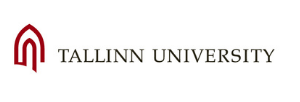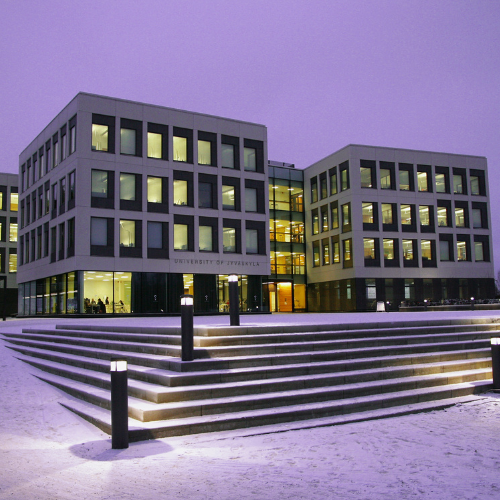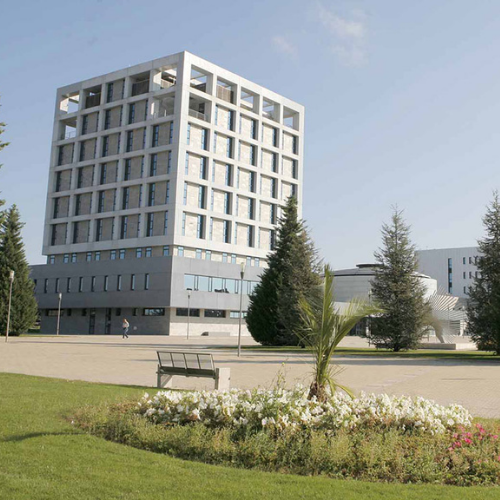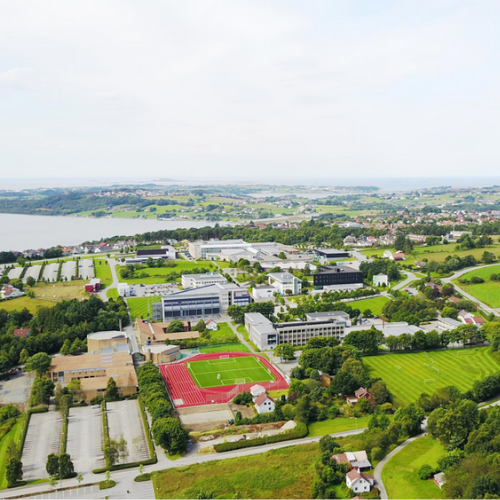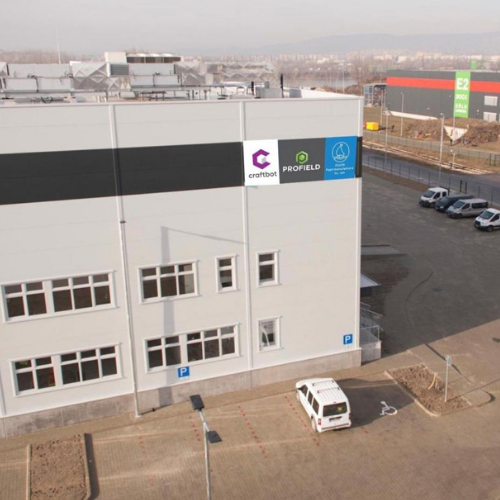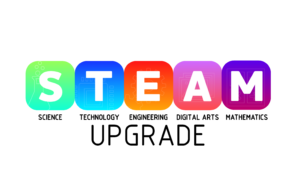
UPGRADING PRE- AND IN-SERVICE TEACHERS’ DIGITAL SKILLS WITH ONLINE STEAM HANDS-ON TRAINING MODULES
Six universities from Europe and 2 technology-related companies from Hungary are participating in the project.
The universities that are involved in this project had already close cooperation with one another in various configurations, including past Erasmus+ projects. They all sharing interests in developing innovative learning environments for enhancing pre-service and in-service teacher education with key competences and digital skills, ICT, and particularly in the field of STEAM education. They have already functioning innovative education labs and/or extensive background in innovative learning research with various focuses.
Project is leaded by Tallinn University.
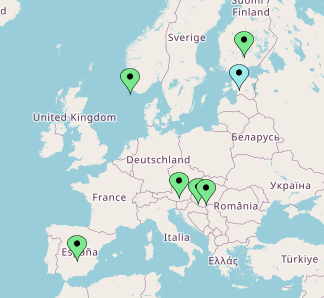
As an Estonian university, Tallinn University (TLU) offers and develops education and research primarily in the Estonian language and based on Estonia's needs. Given the developments in higher education, globalisation also plays a major role.
Tallinn University is a partner in 14 European Union regional programme projects and coordinates one of them, titled Learning Layers. We also participate in the EU Horizon 2020 framework programme both as a partner and as a coordinator. The university has agreements with 43 partner universities in 21 countries and more than 490 Erasmus+ partnership agreements; we are a member of four international networks of higher education institutions, and our researchers and lecturers actively contribute to the activities of their professional networks.
As a promoter of intelligent lifestyle, Tallinn University values the free time of its members: the university has a literary award for its employees, lecturers and alumni, its symphony orchestra has been chosen as the Estonian Orchestra of the Year, and we have multiple internationally recognised choirs and art groups and several Estonian championship level sports teams.
The School of Educational Sciences is the oldest academic unit in Tallinn University that conducts studies on the three levels of higher education, continuing education and research, development and creative activities in the following study areas: teacher education and educational science, non-formal education and lifelong learning, inclusive education and educational leadership and innovation.
The Innovative Learning Environment research group in the University of Jyväskylä’s (JYU) Finnish Institute for Educational Research focuses on the advancement of children’s and young people’s 21st Century Skills. Our research includes studies on user-driven learning technologies, spaces for learning and wellbeing, innovative teaching and learning practices, STEAM education, digital competencies, technology-enhanced learning, and evaluation and comparison of ICT use in education.
The Finnish Institute for Educational Research (FIER) is a multidisciplinary centre for educational research, assessment, and development, based at the University of Jyväskylä, Finland. Its vast research experience, wide-ranging fields of study, and multidisciplinary approach - together with a significant body of researchers and publication volume - make the FIER a nationally unique and an internationally significant unit of educational research.
Growing international collaboration and researcher exchanges have characterised the activities of the FIER from its founding up until the present day. Today, the FIER has a network of contacts worldwide and collaborates with the leading research groups and institutions on every continent. The FIER collaborates extensively with the OECD, various EU Agencies and IEA.
Publications are an essential aspect of the FIER’s activities, research process, and research collaboration. During its existence, the FIER has published over a thousand books and serial publications. Current FIER publications comprise three scientific series, research-based books, the Finnish Journal of Education Kasvatus, and the Finnish Journal of University Pedagogy
The Rey Juan Carlos University (URJC) (founded in 1996) is a public University of the Community of Madrid. It has five campuses: Aranjuez, Alcorcón, Fuenlabrada, Madrid and Móstoles, and several campuses in the capital and about 50,000 students.
The University provides quality training through a wide academic offer. In the current academic year, 81 Bachelor's degrees are taught, of which 9 are Online and 9 in English, and 78 Double Degrees, being the Spanish university that offers the most double degrees, which enhances the training and specialization of students. The variety of disciplines offered by the Rey Juan Carlos University and the high competitiveness of its teachers and researchers have, as a result, a high employability of its graduates
Contributing to the forefront of knowledge, the result is found in our internationally renowned scientific research. It currently has 18 large international projects, 8 of them H2020, along with 31 large national projects and 11 local ones. On the other hand, approximately 1000 articles were published in impacted journals last year, of which more than half are in the first quartile.
Johannes Kepler University Linz (JKU), is located in Linz, Austria. Today, more than 20,000 students study at the JKU, at four faculties and 127 institutions and more than 60 modern, hands-on academic degree programmes. The University has signed partnerships with more than 500 international research and educational institutions. According to the World University Rankings, JKU is ranked 601–800th World University Rankings for the 2021 year and 101-150th Young University Rankings 2016 year.
Linz School of Education is a faculty on JKU. This faculty host more than 50 PhD students in the field of education. Linz School of Education is closely connected with GeoGebra, together with whom works on improving education. GeoGebra is a global learning platform that today has more than 100 million users, and which contains about 10 million different educational materials.
The University of Stavanger (UiS) on the South West Coast of Norway is situated in the most attractive region in the country, with some 300,000 inhabitants. In constant collaboration and dialogue with our surroundings, regionally, nationally and internationally, we enjoy an open and creative climate for education, research, innovation, dissemination and museum activities.
We will challenge the well-known and explore the unknown.
The University of Stavanger seeks to be an open and innovative university that demonstrates a high quality of education, research and artistic development work. Our common direction is guided by the responsibility for sustainable transition. We aim to be characterized by a high level of well-being among students and staff. Energy, health and welfare and learning for life constitute our areas of priority.
Craftbot is a developer, innovator and manufacturer of 3D printers. The Hungarian company is based in Budapest and was founded in 2014. The company’s first 3D printer to utilize FFF technology, has entered the market in August 2014 backed by a successful launch. Since its foundation Craftbot has designed and manufactured 10 different 3D printer models and has sold more than 10.000 units worldwide. Currently the company’s yearly production capacity is between 3-5000 pieces depending on the model composition.
Craftbot offers a complete turnkey solution of Hardware, Software and Lesson plans for the educational institutes. The user friendly, reliable 3D printers help teachers to enhance teaching methods & engaging lab experiences.
The benefits of using Craftbots in education is that teachers can:
- Print objects that can help teach math, physics, biology, chemistry etc.
- Teach 3D design - help students create their own projects
- Encourage STEAM educational projects
- Introduce 3D printing to a wider audience
- Provide a basic knowledge about 3D printing for future secondary school / university students
This project (reference no. 2020-1-EE01-KA203-077987) has been funded with support from the European Commission.
This website and all its contents reflect the views only of the author, and the Commission cannot be held responsible for
any use which may be made of the information contained therein.



